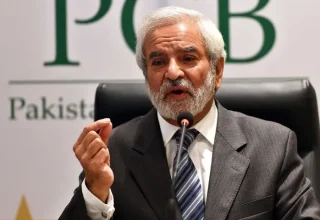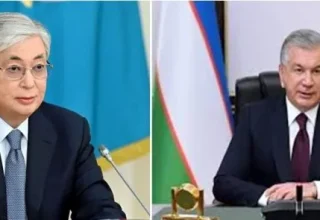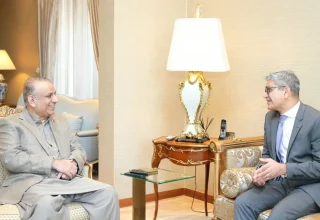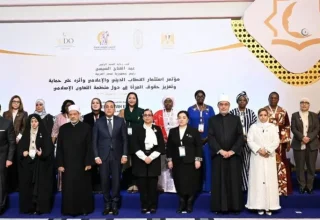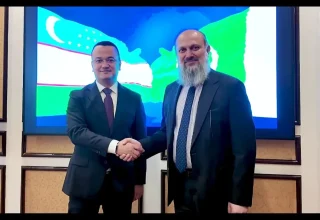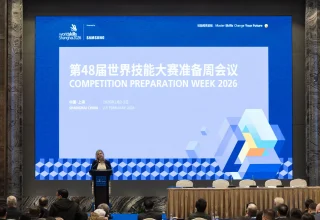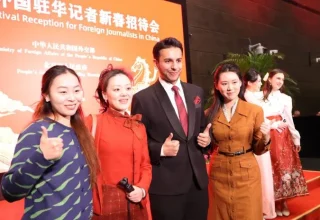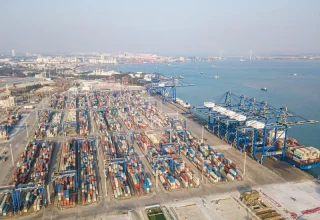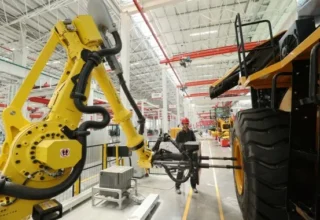
Federal Minister for Planning, Development and Special Initiatives Professor Ahsan Iqbal chaired the first review meeting of the China-Pakistan Economic Corridor (CPEC) following the 14th Joint Cooperation Committee (JCC) session. The meeting, held in Islamabad, reviewed progress on projects under CPEC Phase-II in detail.
The minister directed relevant ministries to prepare new projects under CPEC Phase-II and accelerate the provision of facilities in Special Economic Zones (SEZs). He emphasized that priority should be given to projects that deliver long-term and positive impacts on public welfare.
Professor Ahsan Iqbal stated that the 14th JCC meeting marked the beginning of a new chapter in Pakistan-China relations. He announced that the 15th JCC session would be held in Pakistan next year, coinciding with the 75th anniversary of diplomatic ties between the two countries.
He said CPEC Phase-II had been formally launched during the JCC session, covering sectors such as agriculture, industry, people-to-people connectivity, and information technology. The minister highlighted that the second phase focuses on strengthening the private sector’s role and equipping youth with modern skills.
Ahsan Iqbal noted that CPEC Phase-II would provide a stronger foundation for Pakistan-China relations, generating employment opportunities, attracting investment, and promoting technology transfer. He added that the second phase would significantly and sustainably boost Pakistan’s exports.
The minister said Pakistan’s “Five Es” framework is being aligned with China’s “Five Corridors” to maintain continuity in development and ensure long-term growth. He stressed that the strong partnership between Pakistan and China is essential for economic recovery and sustainable stability.
Referring to progress in Gwadar, Ahsan Iqbal said the Chinese-supported desalination plant had greatly improved water supply in the city. He reaffirmed the government’s commitment to complete CPEC Phase-II with the same dedication and success that characterized Phase-I.
He also shared that, under the Economic and Employment Corridor initiative, Pakistan will adopt the Chinese model to uplift underdeveloped regions. Moreover, a memorandum of understanding (MoU) has been signed between Pakistan’s economic think tanks and China’s Development Research Center to enhance cooperation.
Professor Ahsan Iqbal said that with the support of the Development Research Center, Pakistan will gain crucial assistance in export promotion and policy formulation.








